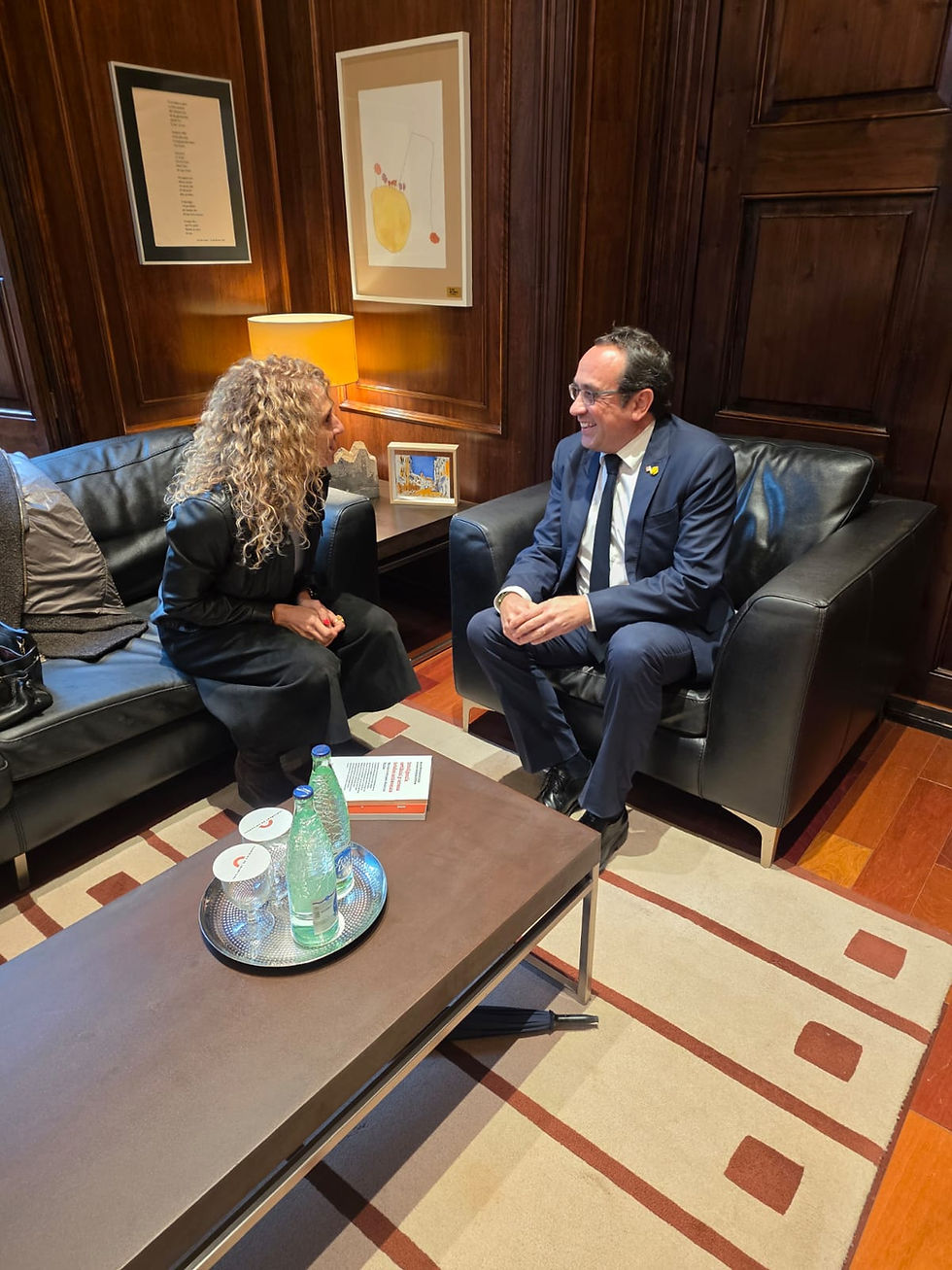Towards Ethical EU Governance: Challenges and Opportunities of Artificial Intelligence
- Cátedra Manuel Ballbé

- Apr 30, 2025
- 2 min read

On March 19, the Faculty of Law of the Autonomous University of Barcelona (UAB) hosted a crucial event organized by the Manuel Ballbé Chair. Under the title "Towards Ethical Governance of the EU," legal and business experts gathered to discuss the challenges and opportunities presented by Artificial Intelligence (AI) in the context of European governance and regulation.
The roundtable, moderated by TV3 journalist Vicky Miró and Dr. Roser Martínez, professor of Administrative Law at the UAB, featured prominent speakers: Susana Navas, dean of the UAB Law School; Alberto Alonso Ureba, professor of Commercial Law; Carlos Padrós, professor of Administrative Law; and Antonio Morales, partner at Baker McKenzie.
The discussion focused on how AI has transformed the world of work and business innovation, creating both opportunities and challenges in terms of governance, regulation, and ethics. Experts agreed that the accelerated growth of AI has opened a fundamental debate about how to balance technological progress with the protection of fundamental rights.
Susana Navas highlighted the complexity of the AI regulatory framework, which ranges from general provisions to specific contractual regulations. The profound impact of AI on society was discussed, comparable to the emergence of the internet, with innovations such as ChatGPT revolutionizing communication and problem-solving starting in 2022.
A prominent topic was the AI Regulation of June 2024, the first comprehensive regulation governing these systems in the EU. Experts explained how this regulation establishes rules applicable to all sectors and complements other regulations such as the General Data Protection Regulation (GDPR).
The speakers emphasized the importance of transparency, accountability, and the need to avoid bias in AI systems. They highlighted the importance of having specialized AI profiles within organizations and integrating risk management into corporate strategies.
A significant challenge mentioned was the harmonization of regulations across the 27 EU Member States. Carlos Padrós noted that, beyond regulation, Europe faces a structural problem of underinvestment in AI infrastructure.
The event concluded with a reflection on the need to balance innovation with regulatory compliance, considering key regulations such as intellectual property, cybersecurity, and data protection. The crucial question was posed: "Do we have the right regulation, but do we have the technology and industry to lead this change?"
This roundtable provided a valuable opportunity to analyze the current and future challenges of AI in the context of European governance, highlighting the importance of close collaboration between the public and private sectors to ensure the responsible and ethical use of this transformative technology.






Comments